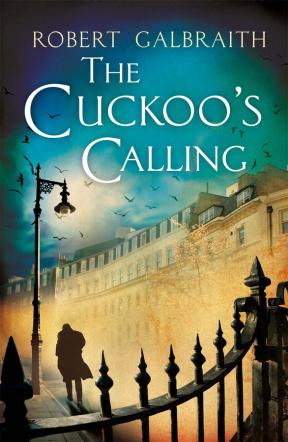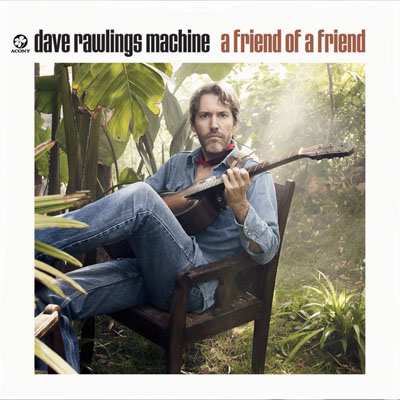
We read a lot of UK news around here, so no surprise yesterday when The Sunday Times outted JK Rowling as new author “Robert Galbraith,” whose debut detective novel The Cuckoo’s Calling went on sale in April.
It seems likely the publishing house was counting on Rowling being outted by an astute reviewer on day 1. Given the author was represented by JK Rowling’s agent, and the book was published by JK Rowling’s publisher and worked on by JK Rowling’s editor, then this first time, unknown author was hyped through the roof — even though this author makes no personal appearances, it’s hard to imagine no reviewer would connect the dots. But they didn’t.
Failing a reviewer discovery, the publisher probably assumed some reader would pick up on the true author’s identity in the early weeks. After all, there was Robert Galbraith’s the over-the-top backstory (typical of Harry Potter). The lead detective’s had a truly Potter-worthy name: Cormoran Strike (a take off on the Cormorant Strike military exercises). All of Rowling’s usual tropes –Latin, drug use, loathing of the middle class — were there. And, best for last, the completely Harry Potter style cover

But again, no reader caught on.
The problem with all this publisher-author strategizing was, of course, they forgot that people just want to read a good book. The reviewers and the public were willing to give a new author a chance. They were willing to extended the author and the publishing house trust. In return, both the author and the publisher had to accept the results — lackluster — at least for 90 days.
It’s understandable that a famous author wants to see if he/she really has star quality writing ability or if their first huge success was an unrepeatable one off. But actually trying to find out by writing a book under another name? That is a writer deeply insecure about her talent and / or ambivalent about her earlier success. That’s an author who needs therapy.
It’s also understandable that while publishers may believe in an author and his/her work (even when they veer off their previous genre), they do have to cave in to the weird demands of very famous authors now and then. This book, no doubt, represents such a case. But, publishers spend a lot of money producing a book. Like it or not, they need a book to make its production/advertising expenses back — and then some — to stay in business.
The Cuckoo’s Calling, was released April 30. Until yesterday, it had sold only 1400 copies (500 by some stats) and had mixed reviews. That’s just not good enough for a publishing house, especially as July 31st is coming up fast. After 3 months, the window starts closing fast on “new book” sales. A new book is fading out of public view. It’s got all the hype it’s going to get. Sales start going down hill fast unless there is genuine reader buzz.
Most publishers hope to make the bulk of their sales on a book by month 3. If there’s reader enthusiasm — a lot of word of mouth — by month 3 a book might start generating more sales than when it was initially released. These extended sales are great because it means an author can be built up. New books in the series are generally then ordered.
However, since sales weren’t very good and reviews mixed, Cuckoo wasn’t going any place fast, ie, a net loss for a publisher. This is not to say it was a bad book, but realistically as a book by a first time, unknown author, it wasn’t doing even ok as regards sales. People kind of liked it, but they weren’t spreading the word. Low book sales mean no request for further books in the series. Very likely, author and publisher would have parted ways.
But Cuckoo wasn’t by a true unknown, a first-time author, and the publisher had an out — doubtless one which Rowling had agreed to readily because she’d tried to flog it to other publishers and they all rejected it as not good enough. So she ended up back at her own publisher. The discussion probably went something like this: If Cuckoo’s sales don’t start to seriously uptick after the first 60 days, there will be an “anonymous” tip sent out hinting that JK Rowling is the book’s real author. And this is what happened.
One of The Sunday Times‘ columnists, India Knight, received an anonymous tip on Twitter saying the novel was actually by Rowling. The Tweeter’s account was then immediately deleted. This tip was followed up on, and confirmed, and . . . voila, sales rocketed the following day.
It’s almost certain the publisher, who wanted to make serious money from Cuckoo, is the “anonymous” source. Since the clueless reviewers/public didn’t figure out this book was actually the work of a “famous” writer, someone had to tell them — and get Rowling’s huge fan base out buying. And it needed to happen in the first 3 months, by July 31st. Why? Can you say “Annual Report,” “Fiscal Year,” or “Stock Dividends”?
There’s nothing illegal about any of this, but it’s all a bit silly and demeaning for an author of JK Rowling’s stature. And as for the publisher, well, a corporation does what corporations do to protect their bottom line and their brands. JK Rowling is a brand. A brand can’t put out a bad product (in this case a book). This is especially true as her first novel for adults Casual Vacancy wasn’t that well received. And by not well received, we mean didn’t go as big as Harry Potter. It was still a 3 out of 5 book that made huge sales.
JK Rowling herself seems to indicate complicity in the whole Cuckoo scheme. “I hoped to keep this secret a little longer,” she said. Clearly, she’d expected her true identity to be revealed, just not within 90 days. She perhaps hoped her book would get great buzz and sell magnificently on its own. At the same time, she seemed to accept that her publisher would exercise its option to out her and make serious money off this book (and any future series’ books), if it didn’t. This “revelation” protects Rowling’s brand and makes her a lot of money.
Should all this reflect badly on Rowling? Truthfully, publishing contracts probably make it extremely difficult for her to self-publish a book under another name and let the work stand on its own. If that was something she wanted to do. Was it? Maybe. One of the things Rowling said, in remarking on Cuckoo, was that she didn’t want to get a lot of hateful reviews again just because she was famous. In other words, she felt Casual Vacancy had been attacked unjustly because of her fame.
Ultimately, it’s readers who decide a book’s fate. If a book is not well received, that’s life. Authors must accept that. They can’t assign blame to the readers. Overall, the number of haters doesn’t outweigh the number of actual open-minded readers. A wildly successful, established author shouldn’t need to hide under various nom de plumes in a desperate desire to get what they believe is an authentic review.
If you are a famous author and you are publishing another book, in another genre, under another name, in order to get a good review because you believe people are out to get you and, apparently, any review that’s negative is from a hater and therefore inauthentic . . . well, that’s just a bit sad and rather paranoid sounding. But, that’s apparently what’s going on here from what the author herself has said.
This is why therapy is a good idea. JK Rowling is a good author. But she can’t own her own talent or fame. Authors have to own their writing, own the fact there are haters out there, and own the fact that they will never be liked by everybody. That’s the only way to have a sane life. If you can only stand to hear good things about your writing because you don’t fully believe in in your work — stop writing.
Rowling told the Times, “I hoped to keep this secret a little longer because being Robert Galbraith has been such a liberating experience. It has been wonderful to publish without hype or expectation, and pure pleasure to get feedback from publishers and readers under a different name.”
That really comes off as complete twaddle. The Cuckoo was totally hyped by the publishing house in a way no first-time unknown author’s book would be. And there were certainly expectations — by the publishing house, if not the author — that the book would sell and sell well. As for feedback? Apparently the mixed reviews of Cuckoo were expected — only this time she believed them. But those reviews still weren’t good enough to move the book, so her publisher outted her.
Translation: The book didn’t sell on the strength of the writing. It was an ok read but nothing so fantastic readers want to tell everyone it’s a can’t-put-down must-read. It was never going to be a best seller. However, sometimes audiences grow, especially over a few books in a series. Publishers often nurture new writers and allow time for this extended strategy to play out.
It’s sad that Rowling has no faith in the reading public. But her books do tend to reflect a pessimistic, even negative, outlook on people and life. What’s sadder still is that Rowling’s publisher didn’t have enough faith in her new book to let it run its course and allow it (and any future books of this series) to develop a following naturally.
One can only assume the publishers didn’t believe in Galbraith’s writing, or lost faith too soon when sales fell off, or, more realistically, that this is just everything going to (backup) plan: Let famous author do this, and 60 days in (if it’s not selling) reveal and make a killing. Win-win. Except for the readers who were duped.
Readers of Cuckoo were cuckolded. And it’s doubtful that title joke, played on the readers by Rowling (and her duplicitous publisher), was unintended. That Rowling still wonders why people write hateful reviews, especially after something like this, now there’s a mystery!
*For the record, Stephen King’s alter ego had no problem moving books — for years. We like JK Rowling and her books (the Potter series) a lot, but at some point an author has to accept books don’t sell well because of the writing, not the readers.*
















